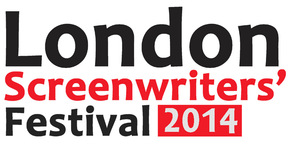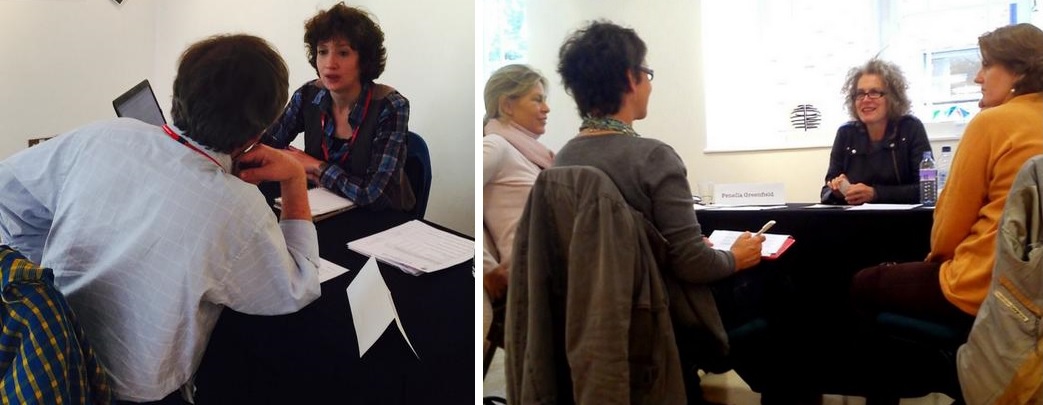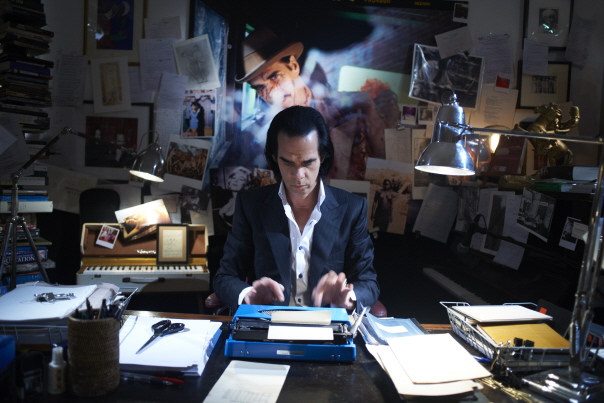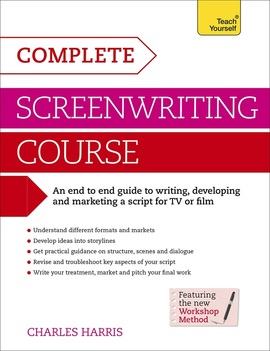|
What a weekend! With our biggest team of Script Doctors yet, the Euroscript Script Surgery welcomed around 160 LSF delegates, and offered guidance on next drafts, treatments, formats, pitches, and even initial ideas. Our army included many who will be familiar to delegates from previous festivals, as well as to those who attend our regular courses, Development Workshops, and use our Script Feedback services. As those who have met us before know well, we take a sincere interest in making sure the writers we work with feel they have the tools to create the very best version of their screenplay. Nowadays there is almost as much advice about how to write a successful screenplay as there is about how to be a successful parent! We often meet people who are overwhelmed with the task, and feel delighted when we find we have been able to make things seem a little less confusing. Delegates' thoughtful feedback collected over the three days has certainly made us feel that we accomplished our mission:
Of course the London Screenwriters' Festival also provides an amazing opportunity to network and catch up with colleagues past and present. We were particularly excited for Jonathan Asser to be taking part in one of the Script-to-Screen sessions, as Anne Woods, Charles Harris and Paul Gallagher have all enjoyed working with him on "Starred Up" before it took UK cinemas by storm earlier this year. Read Paul's interview with Jonathan. It was also a wonderful chance for Charles to meet those eager to purchase his new book the Complete Screenwriting Course. After selling out, Hodder & Stoughton even had to ship more in to satisfy demand!
1 Comment
They had also offered me real money in advance, something almost unheard of today. But was that enough for me to devote what would amount to at getting on for two years of my life? I’d like to share the discussion I had with myself. In the event, I came up with four key areas. 1. Hollywood or not?Almost every screenwriting book out there focuses on the mainstream Hollywood way of writing. There is no doubt that Hollywood style has produced many great movies and TV programmes. The essentials will be familiar: three-act structure, sympathetic protagonist, strong character journey, powerfully driven scenes, spare dialogue, show don’t tell, etc. But the results can also be bland. And there are other styles. I wanted to makes sure that while showing how the mainstream style works, I would also draw on other styles, from indie to British, European, Asian and other cultures around the world. I wanted to ensure writers could develop their own individual voice. 2. PracticalI also wanted to ensure the book would be of practical help to all kinds of writers. Even those books which focus on mainstream Hollywood often skate over issues and miss out key techniques used by successful writers. Such as dealing with obstacles. The great screenwriters use obstacles with enormous guile and sophistication. I wanted to include techniques and exercises I’d developed over the years, such as The Obstacle Chain, to help writers develop essential skills for themselves. 3. Self-EditingThough every writer needs to get feedback from experienced colleagues and consultants, there’s much you can do to fix your script yourself if you know how. However, reading a screenwriting book can be horribly like a hypochondriac reading a medical dictionary! Your ailing script never looks anything like the pictures of health portrayed by the gurus. This meant I needed troubleshooting sections, to enable a writer to get a firm idea of any likely problems and what to do about them. Do I have a slow first act or not? Does my second act sag? And what can be done? 4. Breaking the rulesThe books are very good at showing you the rules, but less helpful when it comes to breaking them. Suppose you have good reasons to write in seven acts, two acts or no acts at all? Or want to have an unsympathetic central character? Too many books leave you high and dry. Or simply tell you not to. This is an area I’ve taught and written about for many years and I wanted to make sure that writers were helped if they wanted to create something that didn’t stick slavishly to the norm. Tell me what you think
|
BLOGTHE ONLY PLACE TO TALK ABOUT THE CRAFT OF SCRIPTWRITING.
|
Privacy Policy © Euroscript Limited 2020







 RSS Feed
RSS Feed


